When we speak about a comfortable home environment, most people typically envisage design elements such as spacious rooms, cozy furniture, contemporary appliances, and personalised decor. However, one often neglected aspect that plays a crucial role in the overall comfort of our homes is the quality of indoor air – essentially, your home’s ventilation. A well-ventilated home doesn’t just keep unpleasant odors at bay but also contributes to healthier indoor air quality.
Understanding the importance of an efficient home ventilation system, its functionality, benefits, and the various types available can provide us with a breath of fresh air – quite literally.
**Understanding Home Ventilation**
In simple terms, ventilation is the process by which fresh, clean air is intentionally introduced into a space while the stale air is removed. This is necessary to maintain the quality of indoor air, regulate moisture levels, prevent mold growth, and improve the overall air temperature consistency.
Homes with poor ventilation can trap pollutants indoors, including dust, pet dander, mold, pollen, and other allergens. Besides, volatile organic compounds (VOCs) released from household chemicals, building materials, and even cooking can accumulate indoors, potentially leading to various health issues such as allergies, asthma, or other respiratory problems.
**Types of Home Ventilation**
There are three main types of home ventilation, namely, natural ventilation, mechanical ventilation, and hybrid (mixed-mode) ventilation.
1. **Natural Ventilation**: This is the most traditional form of ventilation and involves the passive flow of air through doors, windows, cracks, and other openings. While natural ventilation can help reduce energy costs, its effectiveness is significantly influenced by external factors such as wind direction and outdoor temperature.
2. **Mechanical Ventilation**: This is more controlled and involves using mechanical devices such as fans and ventilation systems to move air in and out of the home. Exhaust fans, supply ventilation systems, balanced ventilation systems, and energy or heat recovery ventilation systems fall into this category.
3. **Hybrid Ventilation**: Also known as mixed-mode ventilation, this involves a combination of natural and mechanical ventilation methods to optimize air quality and energy efficiency. The choice of ventilation often depends on the local climate, building design, and individual needs.
**Benefits of a Well-Ventilated Home**
Proper ventilation provides a wealth of benefits that enhance comfort, health, and the overall integrity of the home.
1. **Health and Comfort**: A well-ventilated home boasts improved air quality, reducing the risk of health issues related to poor indoor air. It also helps minimize unpleasant odors and excessive moisture, enhancing the overall comfort levels.
2. **Prevents Moisture Damage**: Proper ventilation can help manage moisture levels, hence preventing the growth of mold and mildew. This also helps protect the home’s structural integrity from damp-related problems.
3. **Energy Efficiency**: Some forms of mechanical ventilation (like energy or heat recovery ventilation systems) can contribute to energy efficiency as they recover some of the energy from the extracted air and use it to condition the incoming fresh air.
**Concluding Thoughts**
It is undeniable that a well-envisioned home ventilation system plays a crucial role in maintaining a comfortable and healthy indoor environment. Understanding the different methods of ventilation and their benefits will facilitate better-informed decisions for homeowners aiming to improve their indoor air quality.
Incorporating high-quality home ventilation is a significant step towards promoting fresh airflow, enhancing living conditions, and potentially safeguarding the health of you and your loved ones. Thus, it is advisable to consult with a ventilation professional to design and maintain a home ventilation system that efficiently meets your unique needs. Indeed, a fresh breath of clean, healthy air may just be a well-planned home ventilation system away!

